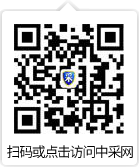【初中英语】中考英语词汇辨析系列二(附解析)
 2021-10-15
2021-10-15 
 iXueHai.cn
iXueHai.cn
 爱学海
字体 - 小
+ 大 纠错指正
爱学海
字体 - 小
+ 大 纠错指正
|
1.by the way/ on the way/ in the way 4. borrow/ lend (1)二者都有"借"的意思,使用时应注意以谁为中心的问题,borrow是以"我"为中心,"借进"的意思,常与from连用。如: I've borrowed two books from the library.我从图书馆借了2本书。 (2)lend是以"你"为中心,意为"借出",常跟介词to搭配。如: Can you lend your dictionary to me?能借你的字典给我吗? (3)这二者都可有这样的结构:borrow sb. sth; lend sb. sth. 5. bring/ take/ fetch/ carry (1)bring意为"带来",指把某物从别的地方带到说话时的这个地方来。如: Remember to bring your book tomorrow.记住明天把你的书带来。 (2)take意为"带走",即把某物带到别的地方去。 It's going to rain. You'd better take an umbrella with you. 要下雨了。你最好带上一把雨伞。 (3)fetch意为"去取来某物",它包括一个往返的过程。 如:Will you go and fetch some water?你去取一点水来,好吗? (4)carry一般指"随身携带的细小物品",此外还多用于汽车、火车等交通工具 意为"运载"的意思。如: He always carries a pocket dictionary with him.他总是随身携带一本袖珍字典。 The bus carried me to the park yesterday.昨天公共汽车把我拉到了公园。 6. beat / win (1)beat vt. 后接的宾语一般为人或相当于人的名词,"打败……", "赢了……";也经常用于被动语态。如: We beat Class Four in the football match yesterday.昨天足球赛我们打败了四班队。Class Four was beaten in the football match yesterday.四班足球队昨天被打败了。 (2) win vt. 一般后接物或比赛作宾语,少用被动语态。如: We won the football game.我们赢得了足球赛的胜利。 3)win 短语: win a game 赢得比赛(游戏) win a gold medal 赢得金牌 win a prize 获奖 win the war 赢得了战争的胜利 win sb. over 把某人争取过来,说服某人 7. by/ with/ in by、with、in都可以表示使用"工具"、"手段"。它们的区别是: by表示"以……方式(方法、手段)"和"乘坐某种交通工具"; with指"借助于具体的手段和工具"; in表示"以……方式","用某种语言"。 [例]He goes to school by bike.他骑自行车上学。 Jim is climbing the tree with a ladder.吉姆用梯子爬树。 Can you say it in English?你能用英语说它吗? 8. be used for/ be used as/ be used by (1)be used for 在这个短语中,介词for表用途,即"用来作……"。 A pen is used for writing.笔是用来书写的。 (2)be used as 在这个短语中,介词as表身份或工具,即"……被用作……"。 English is used as a useful tool in our country. 在我国英语被作为一个有用的工具来使用。 (3)be used by 短语中,介词by后接使用的执行者,"为……所使用"之意。 English is used by travelers and business people all over the world. 英语被世界上旅游者和商人所使用。 9. besides/ except (1)besides与except用于肯定句时,except意为"除……之外(不再有)"; besides意为"除……之外(还有)"。试比较: I have another blue pen besides this one. 除了这枝外,我还有另一枝蓝色钢笔。(1+1,共2枝) We all passed the exam except Tom. 我们都通过了考试,汤姆除外。(整体中……汤姆一人不及格) (2)except前几乎总有all、any、every、no及其复合词等词。 He answered all the questions except the last one. 除了最后一个问题没答外,其余问题他都答了。 (3)except后接名词、代词、动名词和原形动词,这时except=but; 但except后跟副词、介词短语时,不能用but代替。如: The window is never open except in summer.这扇窗户从来不开,除夏季外。He did nothing except/ but clean the house.他只是打扫了房子。 10. both/ all 这是一组代词,也可以作形容词,但要正确使用它们,必须区别他们所指的范围。 (1)both指"两者都"(=2),其否定应为neither。 His two brothers are both workers.他的两个兄弟都是工人。 They both work in our school.他们俩都在我们学校上班。 both的位置:系动词be后,实义动词前。 (2)all指"三个或三个以上都……",否定应为none。 The students all work hard.学生们都很用功。 They are all here today.他们今天都在这里。 They are all strangers. I know none of them. 他们全是陌生人,他们当中我一个都不认识。 11.be anger with/ be angry about/ be angry at (1)be angry with 后只能跟表"人"的名词或代词,意思是"生某人的气", 其后常跟一个表原因的介词for。 The teacher was angry with me for my coming late.老师因为我来晚生气了。 (2)be angry at = be angry about意思是"因某事而愤怒"。 at或about后只能接表"事物"的名词。如: He is angry with/ about small things.他常为一些小事生气。 He was angry about/ at missing the film.他为错过那场电影而生气。 |
| 高三: 语文| 数学| 英语| 物理| 化学| 地理| 生物| 历史| 思想政治| 信息技术| 初三: 语文| 数学| 英语| 物理| 化学| 历史| 道德与法制 |
| 高二: 语文| 数学| 英语| 物理| 化学| 地理| 生物| 历史| 思想政治| 信息技术| 初二: 语文| 数学| 英语| 物理| 地理| 生物| 历史| 道法 |
| 高一: 语文| 数学| 英语| 物理| 化学| 地理| 生物| 历史| 思想政治| 信息技术| 初一: 语文| 数学| 英语| 物理| 地理| 生物| 历史| 道法 |
| 小学: 语文| 数学| 英语| 道德与法制| 科学| 试题: 小学| 初中| 中考| 高中| 高考| 作文: 小学| 初中| 高中| 满分| 技巧|素材|英汉词典 |
| 高校: 985/211| 各省市| 港澳台| 国外| 排名| 中考专辑| 高考专辑| 各省中学| 职业考试: 从业资格| 技术技能| 艺术等级| 公务员| 百年党史 |
| 课外: 教育动态| 教育法规| 老师榜| 家长帮| 学生派| 安全说| 古诗古文| 世界名著| 近代文学| 寓言故事| 格言名句| 阅读技巧| 在线许愿祝福 |
 移动版
移动版






